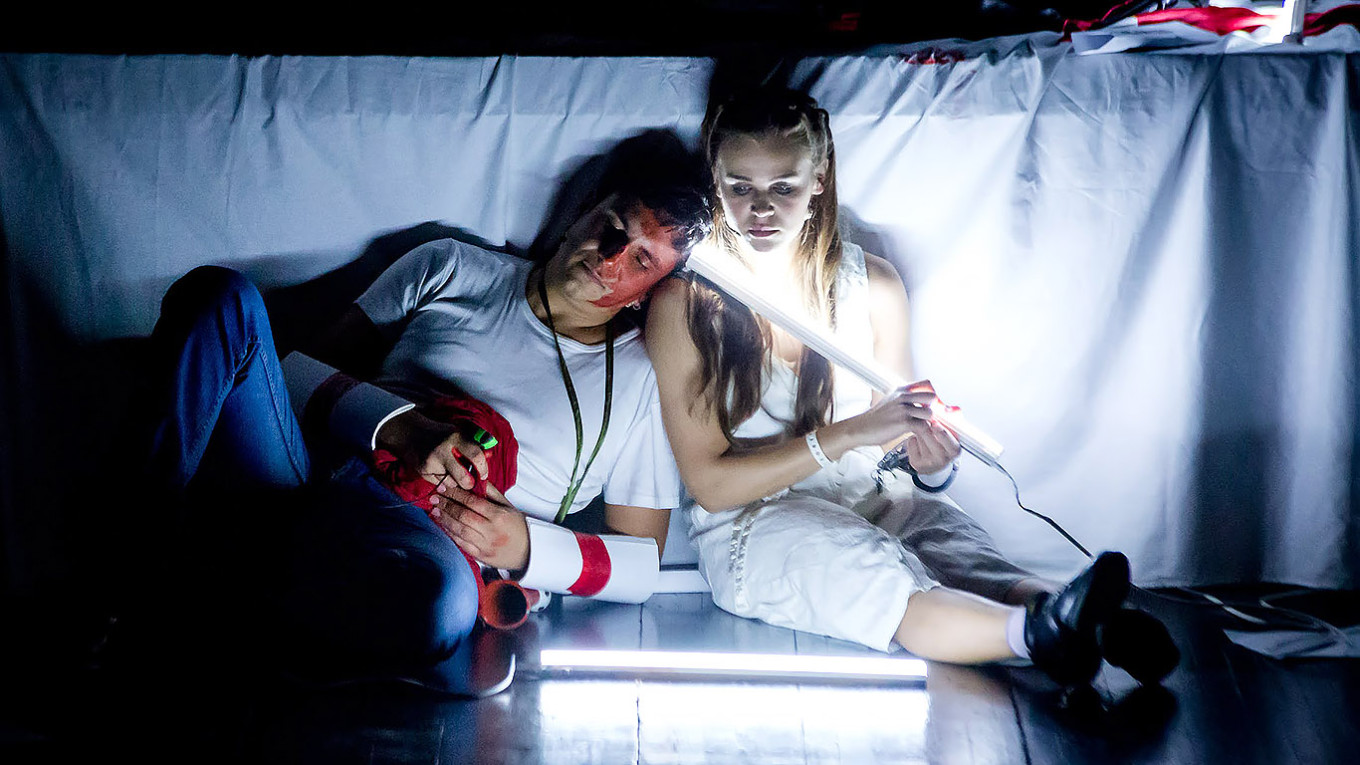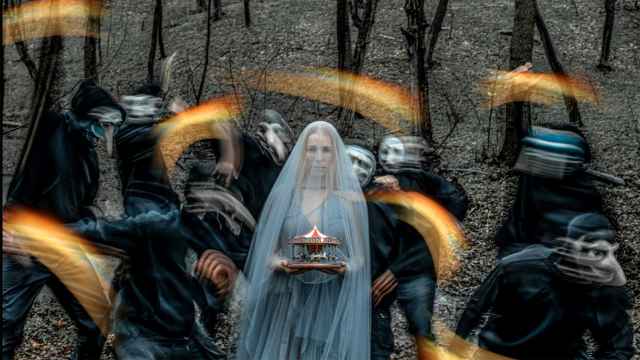“I hate theater,” reads the opening line of “Insulted. Belarus,” the first work Belarusian playwright Andrei Kureichik wrote from exile. It is delivered by a mouthpiece of Alexander Lukashenko, once dubbed “Europe’s last dictator.”
Nowhere is the long drama of Lukashenko’s rule better documented than in Kureichik’s work, where unflinching verbatim testimonies from political prisoners sit alongside the fictionalized accounts of his life as a blacklisted writer subjugated by a three-decade authoritarian regime.
Born in 1980 in the twilight of the Soviet Union, Kureichik likes to say that he has lived in three countries: the U.S.S.R.; four years in the sovereign, democratic Belarus of the early 1990s; and more than three decades of dictatorship under Lukashenko.
It is partly the frame of this unique historical experience that he credits with the success of his early work. A student writing at the turn of a new century, his career started young, with a dizzying ascent to theatrical fame.
A precocious 20-year-old student from relatively modest beginnings — his mother was a computer science teacher and his father a former soldier turned military accountant — one of Kureichik’s earliest student plays was scouted by the Theater of Belarusian Drama and he rapidly became one of Belarusian drama’s biggest names, touring theaters from Moscow to Kyiv.
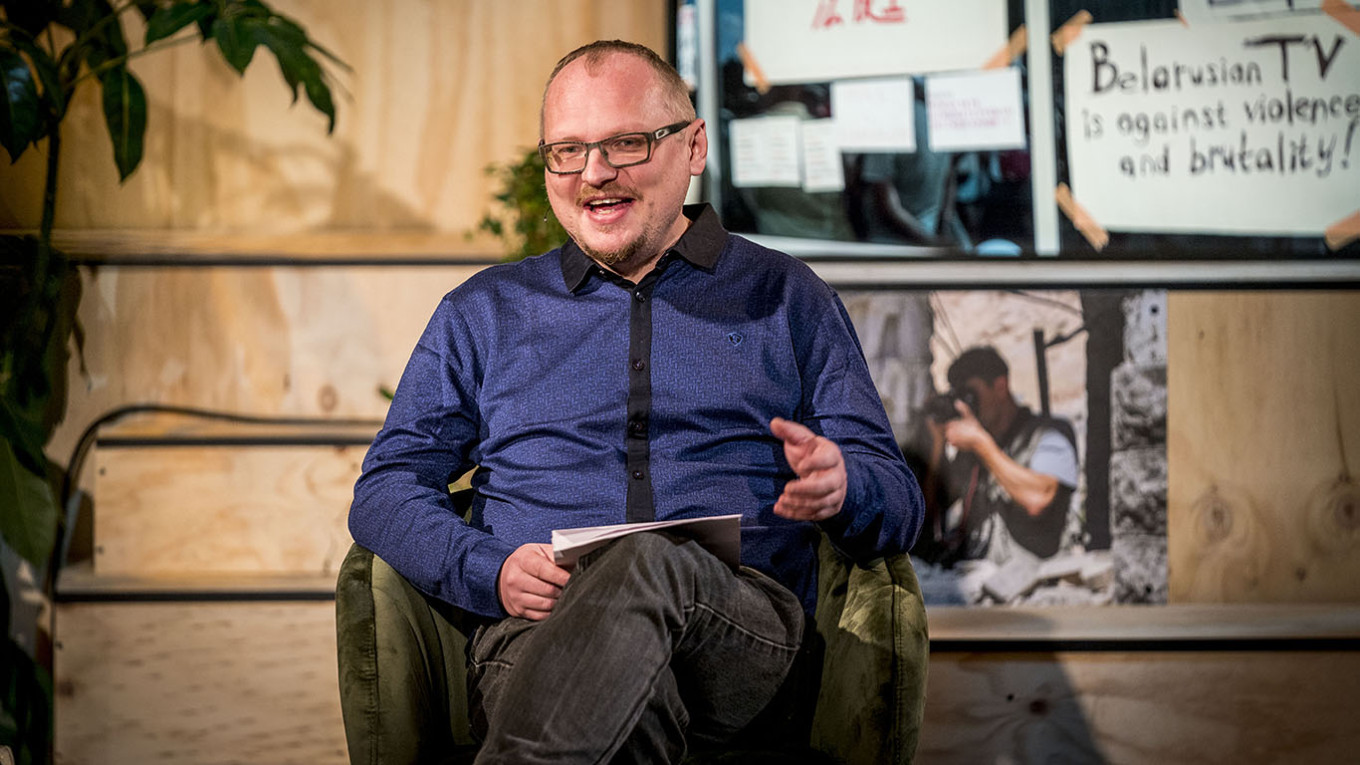
Kureichik also built a lucrative career in film, penning the screenplay to “Lyubov-Morkov,” the highest-grossing Russian-language rom-com of all time, and co-writing a 2011 remake of the 1977 Eldar Ryazanov comedy “Office Romance,” which starred one Volodymyr Zelensky — then on the cusp of stardom.
But being a big name in a country on the intractable path toward authoritarianism was not simple. Kureichik refused to work with any state-affiliated institution, preferring to remain independent. He fell foul of the state and in 2011 was added to an official blacklist of Belarusian artists.
Nine years later, the now more seasoned playwright met with a moment of pivotal change. In 2020, as Lukashenko sought a sixth term in power, Kureichik says there was a “fundamental shift.” The regime’s gross mishandling of the Covid-19 pandemic, economic stagnation and growing opposition momentum had set Lukashenko up for a resounding loss.
At that time, Kureichik was working as a speechwriter to Sviatlana Tsikhanouskaya, the now-exiled opposition leader, and building “the emotional and structural dramaturgy” of her rallies. The opposition movement was unprecedented in scale and energy.
But nonetheless, Lukashenko claimed a laughable 80.23% majority in the Aug. 9 vote. Protesters took to the streets in droves but were greeted with a brutal crackdown marked by thousands of arbitrary detentions and human rights violations.
Still, at that time, it felt like there was no stopping the vast wave of resistance. Kureichik credits this to theater, saying it was on the front line of mobilizing protesters, discrediting state propaganda and raising the profile of political prisoners.
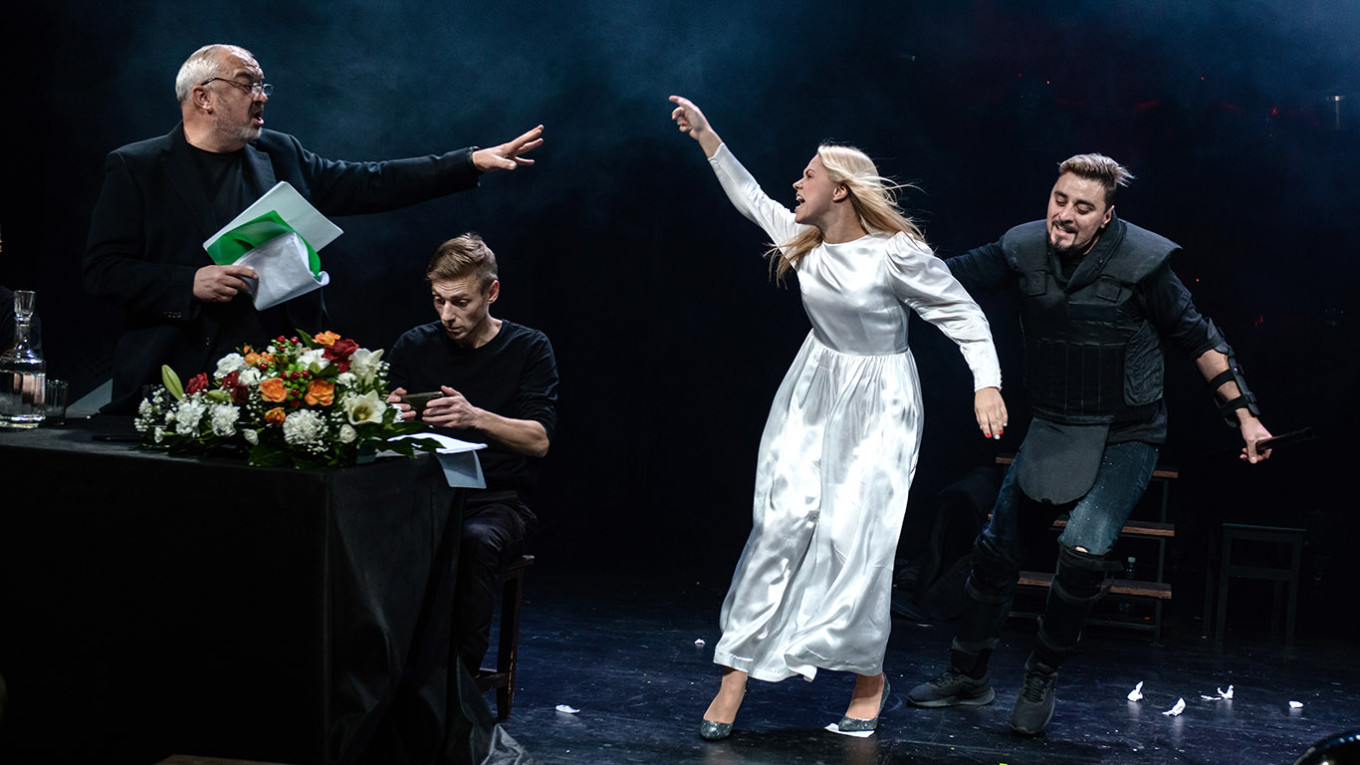
Lukashenko took note. At the end of August, almost 60 actors and staff were fired from Belarus’ Janka Kupala National Theater, the catalyst for mass layoffs in the cultural and theatrical sphere.
After high-profile arrests of prominent actors, directors and theater workers, Kureichik’s lawyer called him to warn of his imminent arrest. By the evening, he had left the country.
Rather than a show of strength, Lukashenko’s phobia of cultural institutions and their unique ability to undermine his illegitimate rule cast them as one of his greatest vulnerabilities.
His fears were founded. Over just one month and largely from exile, Kureichik wrote and disseminated his best-known play “Insulted. Belarus,” an incendiary work that dramatized the real-life events of the 2020 protests with horrifying clarity and arresting urgency.
In return for his bravery, Kureichik was met with a flurry of international attention and, as he recalls, “a wave of solidarity which cannot even be described.”
The genre of documentary theater took center stage for Kureichik from then on, and his play “Voices of New Belarus,” a verbatim play rendering the testimonies of 13 different victims of state torture and arrests, was greeted with similar global acclaim in 2022.
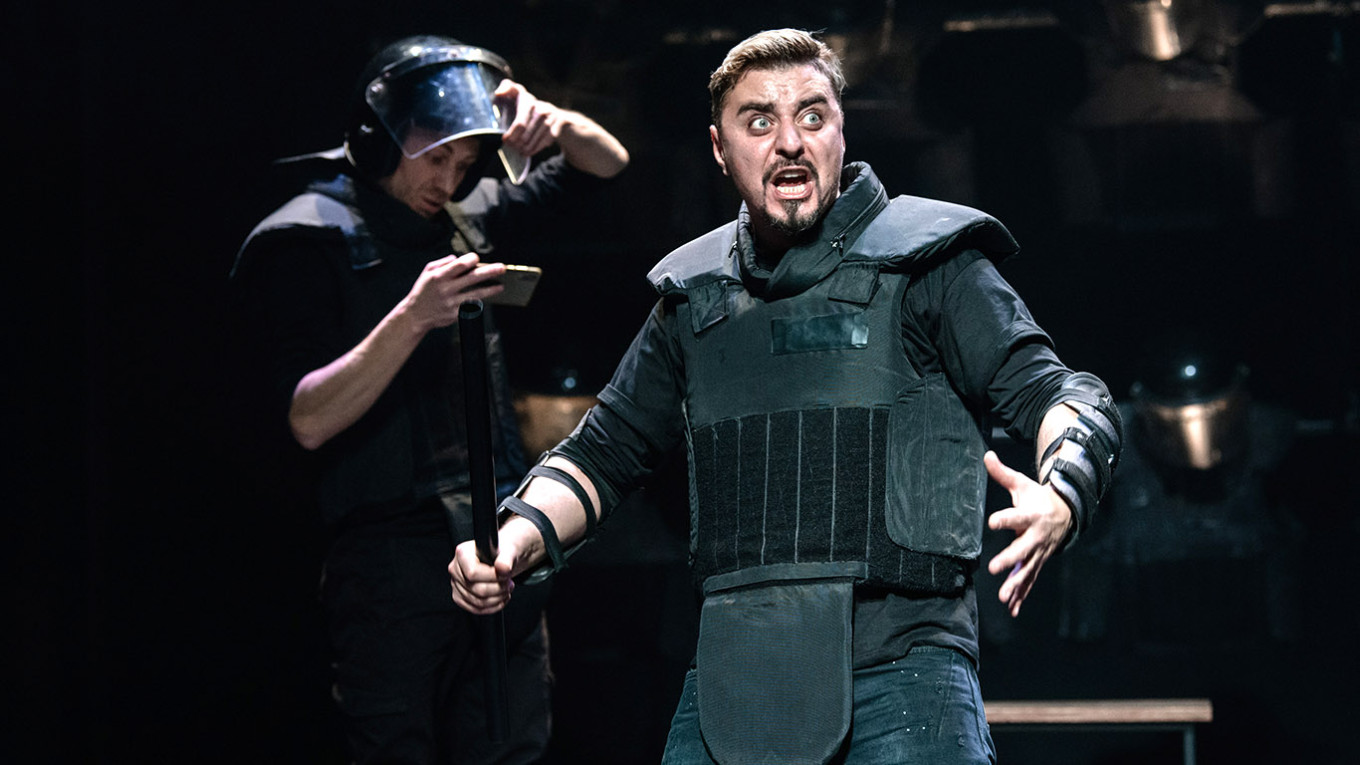
Kureichik says that Belarusians are still protesting, albeit in a different way to 2020.
“I know a lot of Belarusians who joined the Ukrainian army,” he says. “They’re not only fighting for Ukraine, they’re fighting for Belarus.” In January, 24-year-old Belarusian Maria Zaitseva, who participated in the 2020 protests, was killed on the front line in Ukraine.
In exile, Kureichik still feels the long arm of the Belarusian state. His property has been arrested in Minsk. His sick father, relentlessly interrogated by police, recently passed away. His wife, harassed for being married to a vrag naroda — an enemy of the state — remains in Belarus.
Kureichik continues to create theater in defiance of Lukashenko. The power of theater, he says, lies in its generativity: “It’s not easy to fight with tyranny on a personal level like in Belarus, but it provokes thoughts about freedom and value.”
For his new play, Kureichik turns to the theater of war. “The Empty Shell of War,” which premiered at Yale University last month, is a monodrama following a Jewish girl who survived the Holocaust in Belarus, an often overlooked site of suffering during World War II — and yet one of the bloodiest, wiping out as much as 90% of its Jewish population.
“The Empty Shell of War” is a product of hours spent sifting through the Fortunoff Video Archive for Holocaust Testimonies at Yale, which consists of over 12,000 hours of tape.
Although it doesn’t openly criticize the Belarusian state, the play’s subject matter still stands in opposition to Lukashenko. The Belarusian president has repeatedly depicted the Holocaust as an attack on the Soviet people, rather than the Jewish people.
Vouching for the play’s importance, Kureichik believes that “art has the power to preserve memory” against official discourses, also citing Lukashenko’s destruction of 70 memorial crosses marking the site of Stalinist mass executions.

“The Empty Shell of War” has a double meaning for audiences who might have assumed that its content would touch on Ukraine. Kureichik, who lived in Ukraine at the start of his exile in 2020, says he was inspired by the response of Ukrainians suddenly flung into full-scale war.
Kureichik wanted to honor “the warriors who are fighting for their country,” but also “women who had the opportunity to leave and not only stayed, but went to the front line to help people there.”
“I really wanted to reflect these feelings in the play,” he says. “Something that resonates is when you understand that the enemy does not just want to kill you. It wants to vanish your history, to vanish you as a nation.”
Kureichik quotes historian Timothy Snyder, referring to Belarus and Ukraine as “Bloodlands,” territories considered dispensable by Hitler and Stalin in World War II. On the third anniversary of Russia’s full-scale invasion of Ukraine, Snyder wrote that “Ukraine resists an unreality war,” its aggressor attempting desperately to assert that “Ukraine does not exist. There is no state, no nation.”
“The biggest tragedy,” Kureichik says, “is that all of our mistakes could be possible again because we don’t remember. It’s always about humanity. Understanding humanity and the value of a single human life. This play is a way of training the audience to stay human, to think about every single person.”

Art, after all, is paramount. “I saw with my own eyes the influence of art in Belarus. And I’m sure that a big part of changing people’s minds was because of art. And now, in Ukrainian society, art which tries to describe the war and explain the war is very influential.”
One such artistic work is the poem “What War Is” by the Ukrainian poet Ostap Slyvynsky, which cradles the line “whoever hasn’t been in war doesn’t know what silence is.”
How is it possible to depict war with words? “The Empty Shell of War,” which ends with a long pause, leaves it to the audience.
“It tells you to look inside yourself,” Kureichik explains. “Ask yourself how it’s even possible. Try to understand what war is really about.”
A Message from The Moscow Times:
Dear readers,
We are facing unprecedented challenges. Russia's Prosecutor General's Office has designated The Moscow Times as an "undesirable" organization, criminalizing our work and putting our staff at risk of prosecution. This follows our earlier unjust labeling as a "foreign agent."
These actions are direct attempts to silence independent journalism in Russia. The authorities claim our work "discredits the decisions of the Russian leadership." We see things differently: we strive to provide accurate, unbiased reporting on Russia.
We, the journalists of The Moscow Times, refuse to be silenced. But to continue our work, we need your help.
Your support, no matter how small, makes a world of difference. If you can, please support us monthly starting from just $2. It's quick to set up, and every contribution makes a significant impact.
By supporting The Moscow Times, you're defending open, independent journalism in the face of repression. Thank you for standing with us.
Remind me later.


